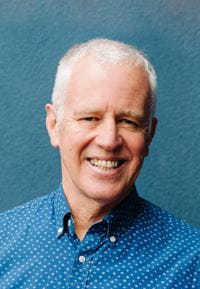-
Industry
SolutionsIndustry
SolutionsTeam with a technology partner that delivers across all industries.
Read more about industry solutions -
Software
SolutionsSoftware
SolutionsLearn how to optimise your business processes to save time and increase productivity.
Read more about software solutions -
Services
-
Products
Products
Feel confident knowing your technology will deliver reliability and longevity as you move forward.
Read more about productsMultifunctionEnhance your operational and financial performance with Toshiba's award-winning range.
Read more about multifunction Software
SoftwareSave money, better manage documents, secure critical information and improve efficiency.
Read more about software Pre-Owned MFDs
Pre-Owned MFDsQuality pre-owned A3 Multi-Function Devices (MFDs) fully refurbished by master manufacturer-trained technicians.
Read more about refurbished MFD Barcode Printer
Barcode PrinterToshiba Auto-ID, Barcode and Label printers are the perfect solution for everyday business.
Read more about barcode printer Printers
PrintersDesigned to deliver power and performance to small businesses and workgroups.
Read more about printers Interactive Flat Panels
Interactive Flat PanelsCreate inspired learning and smarter corporate collaboration
Read more about IFPs
-
Support
Support
We are here to help! Discover and access information about your Toshiba products or simply contact us for priority service.
Read more about support -
Company
Company
Toshiba is the world's most trusted provider of industry-targeted solutions that help increase the value of ideas and information.
Read more about company
Register for our next Discovery Session to find out how the Young Leaders Program can benefit your school. Join the community of schools who receive regular tips and strategies from the Young Leaders team.
Some ideas when applied produce incredible outcomes.
US academic Carol Dweck’s Growth Mindset idea is a prime example.
Before Dweck came along ‘fixed’ mindsets were the go.
A student was either good at math or not. Ditto for public speaking, art, music, or any other field of endeavour.
So, millions of students moved into adulthood believing that they would never achieve at math, public speaking, art, or music because they struggled at school.
Dweck’s growth mindset idea changed all that. In essence, she said that with effort you can learn skills in any area of endeavour.
This single idea removed a limit on personal growth that has held so many people back.
Mindsets are powerful predictors of future performance.
Three decades work immersed in childhood behaviour, leadership and school culture has reinforced for me the incredible impact that mindset has on student learning, behaviour, and performance.
Whether a student thinks they can or not, they are correct. If they believe they can achieve, then they most likely will. If they believe they can’t, they’re usually right.
Top 5 leadership mindsets to develop in students.
The following leadership mindsets, when systematically taught and reinforced, leave popular concepts such as gratitude and empathy in the shade in terms of lasting positive impact on students.
Speak out!
“It’s very important that those who present themselves as a leader and want to be a leader, speak like a leader.” Kamala Harris
Great leaders are great communicators. They know how to deliver a message clearly and precisely. Yet speaking in front of others is a skill few people have mastered.
There’s a mystique surrounding public speaking that’s not deserved. “It’s too hard!”, “I could make a fool of myself” are the types of mindsets that hold many people back from getting on their feet and speaking.
There’s a lot to learn when it comes to speaking effectively in front of others but it’s imperative to start by using the right mindset. Encourage students to speak up and speak out at every opportunity including in class, at assemblies, community events as well as in front of family, parents, teachers, and school Council.
Remove the mystique, change the mindset, and watch students thrive.
Be accountable.
“When you have decided what you believe, and what needs to be done, have the courage to stand up and be counted.” Eleanor Roosevelt
The accountability mindset is pertinent at a time when many politicians and people in public life avoid taking personal responsibility for their actions.
Accountability is the bedrock of leadership and a key character trait to nurture in future leaders.
Accountability starts with personal accountability before moving onto taking responsibility for the actions of the group you are leading.
From accountability comes integrity, which is a highly valued character trait.
Plan ahead
“What inspires me is not just who leaders are but what they do. They roll their sleeves up and get to work.” Hilary Clinton
Effective leaders in all walks of life think strategically. Parents who use a leadership mindset are outcome-oriented, rather than reactive, with their parenting. They think long and hard about the types of children that they want to raise, which impacts on every aspect of their parenting.
Similarly, great school leaders think vision and mission first, which they integrate into their daily activities.
The marriage of strategy with action is an essential student leadership tool, that’s best established through a ‘plan ahead’ mindset.
Encouraging students to think ahead, make plans and manage their time effectively will help them become effective, action-oriented leaders.
Work together
“As we look ahead to the next century, leaders will be those who empower others.”
Bill Gates
Moving from “Me to We” is a difficult mindset shift, particularly for students who are naturally capable in an area they are asked to lead.
Talented sports people, exceptional actors and natural musicians often struggle to support and encourage those less talented in their teams, ensembles, or groups.
Cooperating with, encouraging, and accepting others are essential qualities of an effective leader.
Thinking of how a group rather than an individual would solve a problem, play a game, or produce a piece of music helps promote a teamwork mindset that is at the heart of effective student leadership.
Tune in.
“Leadership at one time meant muscles, but today it means getting along with people.” Mahatma Ghandi
Without the ability to regulate your own emotions a leader is at the mercy of their moods and the actions of others.
Similarly, an inability to recognise the emotions of others dooms a person to acting within a vacuum of their own thinking and emotions.
When we consistently encourage students to tune into their own emotions and the emotions of others before acting, we are helping them acquire a powerful long-term leadership quality that is relevant in any context or field of endeavour.
Developing leadership takes a mindset shift.
Perhaps the biggest mindset shift needs to come from we teachers ourselves. The shift from ‘only some students can lead’ to ‘all students have the potential to lead’ can be tricky for those stuck with outmoded beliefs.
Similarly, the shift from viewing students through a behavioural lens to viewing them through a leadership lens can be problematic for many people. Practice makes permanent so the more teachers look for the leader in students, the more likely they are to do so in the future.
How student leadership matters in schools
When students are schooled in leadership from the primary school years the effects are felt immediately by teachers, parents, and students. The cultural shift is nothing short of transformational.
But the real impact of student leadership development is felt years down the track, long after students have left the school gate. Leadership development benefits society at large as good leaders are needed in all walks of life including the workplace, in families and within communities.
Creating a generation of future leaders will be the real legacy of teachers and school leaders with the courage and foresight to develop real leadership in every student who comes to school.
Register for our next Discovery Session to find out how the Young Leaders Program can benefit your school. Join the community of schools who receive regular tips and strategies from the Young Leaders team.

Michael Grose Bio
Michael Grose is the director of the Young Leaders Program, an in-school program for teachers designed by teachers that builds strong cultures of student leadership in primary schools. To get helpful student leadership news delivered straight to your inbox visit youngleadersprogram.com.au. Your first gift will be our fabulous Language of Student Leadership Guide.
